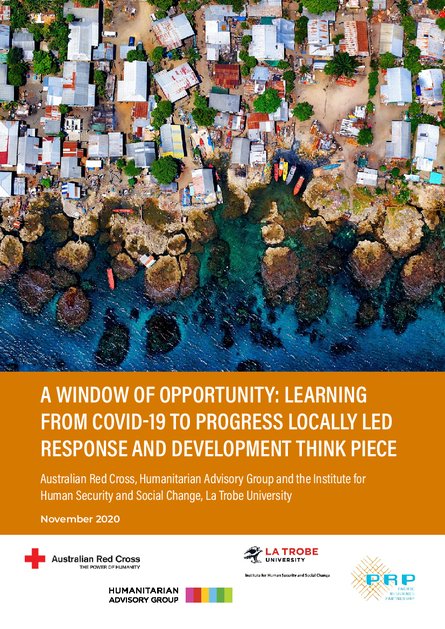
As COVID-19 was declared a pandemic and international travel restrictions, border closures and lockdowns ensued, large numbers of expatriate aid workers returned to their home countries. This significant change in the demography of the aid industry in many countries has led to a shift in roles for international, and national and local actors in humanitarian and development work. Some claimed that in the Pacific region, COVID-19, and responses to it, would elevate local actors and give them more opportunity to take on leadership and decision-making roles.1 It was suggested that this could establish new forms of locally led social and collective action and challenge the traditional narratives of aid. Others argued that the humanitarian system more broadly had retreated to known territory, working almost entirely through large multilaterals and minimising the risk associated with new partnerships with national and local actors.2 These competing narratives highlight the need to map and learn from how COVID-19 is affecting the planning and delivery of humanitarian and development aid. With this motivation, a group of organisations came together to examine the shifts underway in the delivery of humanitarian and development assistance in the wake of COVID-19 in the Pacific, and the emerging practices of local staff and organisations.